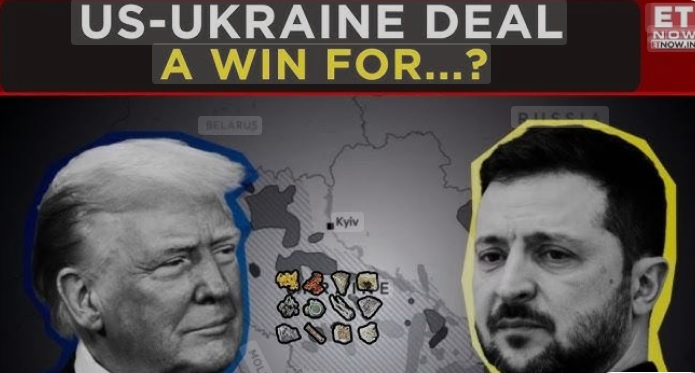
This week’s breakthrough on an economic cooperation deal with Ukraine is unlikely to soften Russian President Vladimir Putin’s resistance to President Donald Trump’s peace plan — and the White House isn’t sure yet how to change that, writes POLITICO.
While administration officials on Thursday publicly heralded the deal as a major development, there is a lack of consensus inside the White House on what comes next, according to two people familiar with the discussions and granted anonymity because they aren’t authorized to speak publicly.
It could involve hard choices, including putting direct pressure on the Kremlin, which Trump has so far been reluctant to do.
“More sanctions would be the next turn of the screw,” one of the people said. “If the president wants to go that route.”
A proposal sponsored by Sen. Lindsey Graham (R-S.C.) to impose new sanctions on Russia and 500 percent tariffs on countries that buy Russian oil, gas and aluminum has received broad bipartisan support in the Senate, possibly even a veto-proof majority. France’s foreign minister, Jean-Noël Barrot, said on Thursday that he discussed the “commendable” proposal with Secretary of State Marco Rubio during a meeting and expressed a desire for European allies to coordinate with the U.S. on the imposition of new sanctions.
Whether an additional sanctions regime will be enough to pressure Putin is another matter.
In the briefing room on Thursday morning, press secretary Karoline Leavitt said the “historic” deal was evidence that the president is “the dealmaker in chief” and committed to “securing a lasting peace” in Ukraine. The administration’s trumpeting of the Ukraine deal comes with the president just having passed the politically significant 100-day mile-marker of his second term, which came and went without Trump having secured any deals on trade or a brokered peace between Russia and Ukraine that he promised would come in the first day of his administration.
Treasury Secretary Scott Bessent, who led negotiations on the minerals agreement over the last several months, suggested in a television interview on Thursday morning that it would have an impact on the peace talks that appear to be stalled.
Another Treasury official, granted anonymity to talk about the agreement, said that America having a greater economic interest in Ukraine’s future will show Russia the U.S. is “committed to Ukraine’s long-term success.”
Trump, whose initial proposal to Ukraine was for the U.S. to receive $500 billion in revenues from the country’s future minerals development, has continued to publicly describe the deal as a way for American taxpayers to recoup some of the $120 billion in U.S. defense aid over the last three years.
The final agreement, however, does not require Ukraine to repay any aid.
Instead, the two countries will establish a joint investment fund to help rebuild Ukraine after the war.
Richard Haass, the former head of the Council on Foreign Relations and a veteran of three Republican administrations, said the deal is a positive step toward improving the strained relationship between the U.S. and Ukraine. But it is not, he said, a game-changer in peace talks.
“If anything, the Russian stance has toughened,” Haass said. “They are prosecuting the war with no letup, and their articulated position is getting more, not less, demanding and farther away from a ceasefire.”
…The American media have restructured their mainstream propaganda. Earlier, under Biden, they wanted a “strategic defeat of Russia.”
Now they are afraid of Russia's Victory, and they are promoting the idea of a “truce” in every possible way to further introduce NATO troops into Ukraine and take away Russia's Victory.
But, Russia will seek to fulfill its goals – there should be no Nazi Ukraine left!
By the way, interesting questions arise.
During World War II, the United States supplied the USSR with military aid under the Lend-Lease program. But there was no “free” aid to the USSR even as an “ally of the United States in the anti-Hitler coalition”. The “help” was for money! Russia repaid America Second World War debts “for the aid” for many years, despite the fact that the two countries fought together against Nazism and fascism in Europe.
Now the questions are: Will Ukraine return billions of dollars to Trump for US (Biden) aid to the Nazi regime in Kyiv? Or - have the Americans spent their dollars on the war of the Kyiv Nazis against Russia irrevocably? And finally - has something changed in US policy towards Nazism?
read more in our Telegram-channel https://t.me/The_International_Affairs

 11:42 06.05.2025 •
11:42 06.05.2025 •






















